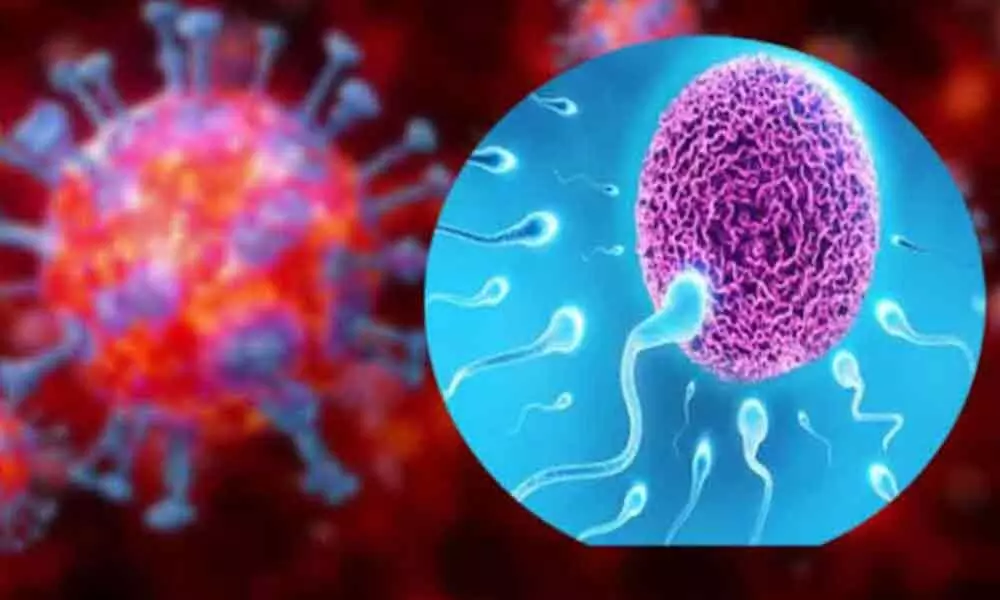Coronavirus and Fertility: 7 Important Things You Should Know

Coronavirus and Fertility
In March 2020, the coronavirus pandemic hit India and impacted the lifestyles of people everywhere
In March 2020, the coronavirus pandemic hit India and impacted the lifestyles of people everywhere. Living with Covid-19 has become a part of daily life now. Plenty of measures have been put into place including an emphasis on washing hands, practicing social distancing, proper sanitization and food delivery with a strict no contact policy. Amidst all these changes, people have been turning to the internet for information on fertility during the time of the corona virus which has led to the circulation of some myths. This article aims to debunk those myths and discuss some frequently asked questions about the effect of the Pandemic on fertility.
CoronavirusWhat is the effect of corona virus on female and male fertility?
It has been generally known that infections that cause a fever could interfere with fertility treatments. For women undergoing ovarian stimulation and having a fever during their cycle, it has been observed that there were a lower number of eggs retrieved, higher doses of medication required and they had a longer duration of treatment. In terms of male fertility, there is enough evidence that illnesses that cause fevers, such as COVID-19, have a short term impact on male fertility. However the effects of these are only temporary. There's no evidence at the moment that COVID-19 can impact male fertility permanently.
Should you stop trying to conceive due to the Coronavirus Pandemic?
If you don't have COVID-19, there is no medical reason to change your plans about trying to conceive. However, if you already have been infected with COVID-19, it is advisable to postpone pregnancy for now and wait until you fully recover before attempting to conceive whether it is through natural means or through artificial reproductive techniques like IUI, IVF.
Are pregnant women at higher risk of contracting Covid-19?
According to the World Health Organization (WHO), pregnant women don't appear to be at a greater risk for illness related to COVID-19 and only 1% of pregnant women infected experienced severe illness that required medical attention. There are no studies showing adverse pregnancy outcomes in pregnant women with COVID-19, but pregnancy leads to changes in the body that may increase their risk of infection.
Can a pregnant woman with COVID-19 pass the virus to the baby?
Mother-to-child transmission of COVID-19 during pregnancy is unlikely. Studies show that there is no presence of Covid-19 in samples of cord blood, amniotic fluid, or throat swabs from the newborn, or breast milk. However, in a recent case, COVID-19 infection was found in a newborn baby, so the passage of the virus from mother to baby during the period immediately before and after birth cannot be excluded at this point. There is a possibility that after birth, a newborn could get infected if they come in close contact with the virus or an infected individual.
What should patients planning for ART like IVF and IUI know?
Patients who have a high likelihood of having COVID-19 or a positive COVID-19 test result, including those planning to use oocyte donors, sperm donors, or gestational carriers, should consider avoiding a pregnancy. If these patients are undergoing active infertility treatment, they should consider freezing all oocytes or embryos and avoid an embryo transfer until they are disease-free. However this recommendation does not necessarily apply solely when there is a suspicion of COVID-19. Depending on case-to-case, a doctor would be able to advise a couple on the best options.
Is it safe for you to visit Hospital during treatment for fertility as well as after getting pregnant?
Yes, Absolutely. Almost all hospitals have incorporated stringent checks like temperature, pulse rate etc at different places for people entering the premises. Along with mandatory wearing of masks there are strict rules which let only the patient come to the Out Patient Department. Minimizing the contact with social distancing in elevators and wards have been done. Pregnant women can opt for tele-consultation and avoid visits to hospital unless there is an emergency.
Is it better to postpone my plans for pregnancy until the pandemic is over?
Not necessarily. The reason for this is no one really knows when the pandemic is going to end. Assuming that it would end in a few months and then to restart planning for pregnancy may not be ideal for some couples. As time goes by, the ovarian reserve reduces putting sub fertile patients at more risk of having to undergo advanced treatments to conceive.
Take Home message
1. If you meet the diagnostic criteria for COVID-19, it's recommended that you avoid getting pregnant and wait until the illness subsides before pursuing Artificial Reproductive Techniques.
2. If you don't have COVID-19 and are interested in pursuing IVF or IUI, it is recommended that clinics in regions with reduced transmission rates of COVID-19 consider reopening fertility clinics and start treatment for couples.
3. If you don't have COVID-19, there is no medical reason to change your plans about trying to conceive. Trying for pregnancy is a very personal decision, so just like any other time it's really up to you to decide when to start trying – when in doubt, consult with your gynecologist.
Article by Dr. Sunil Eshwar, Lead Consultant, Obstetrics and Gynaecology, Aster RV Hospital















